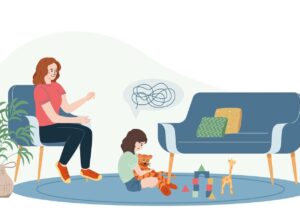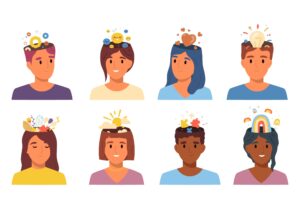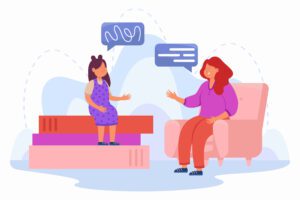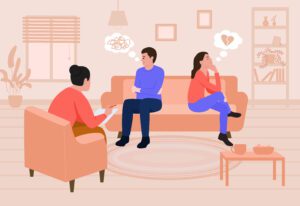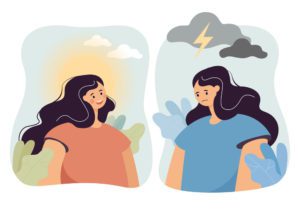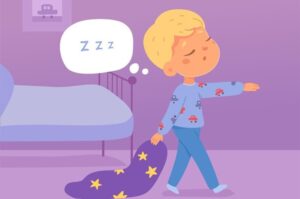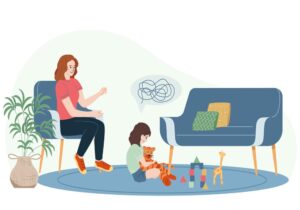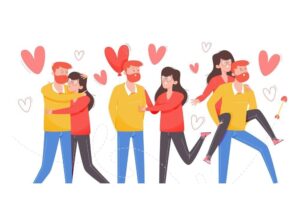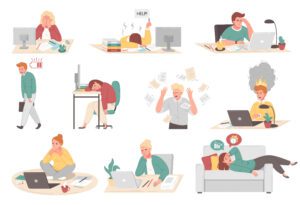Managing Depression During Social Isolation
This article has been researched and written by Nayla Daou. AI has not been used in producing this article.
The outbreak of the global coronavirus pandemic is stressful for many people. Since the World Health Organization (WHO) declared the COVID-19 outbreak a global pandemic, regions across the world have mandated quarantine and social distancing to help slow and stop the spread of the virus. Around the world, schools and businesses have closed, travel plans have been capsized, and panic over supplies and treatment have created the opportunity for unresolved feelings of isolation and depression.
Anxiety and fear about the COVID-19 virus, coupled with the impact of long-term social isolation, can take its toll on your mental health. However, there are ways to mitigate the feelings of loneliness and depression as the pandemic presses on.
Focus on What You Can Control
It’s important to remind ourselves that our current situation is only temporary. Whether you have been furloughed from your position, are currently working remotely from home, or your children are remote learning, this “new normal” is not permanent.
The world’s best and brightest medical professionals are working tirelessly on treatment plans and a vaccine and for the COVID-19 virus. It’s easy to spiral down the rabbit hole of all the unknowns. It’s far better for your mental health to focus on what you can control. Feeling stressed about remote work?
Take control by setting up a defined work space in your home. Are you feeling sad about not seeing family and friends, take control by reaching out virtually or over the phone. You may not be able to control the pandemic guidelines and restrictions, but you can control how you respond to them. You can choose to wear a mask when you leave your home. You can choose to stay 6 feet away from other people. The key is to focus on what you are able to control.
Eventually, as we work our way through the pandemic, life will return to normal. Schools and businesses will reopen, social distancing guidelines will be lifted, and traveling will resume. We just need to be patient.
Take a Media Break
While it’s important to stay up-to-date on the latest pandemic information and local health guidelines, it’s easy to become engulfed by the tidal wave of pandemic media. Be sure to take a break from the news and social media. Spend time doing something you love. Read a book, take a walk outside, cook your favorite meal, or play a game with your children. The point is to have a little fun and allow yourself to mentally reset and recharge.
Stay Connected
Even though many of us are not permitted to meet in person, digital technologies provide an alternative to stay connected to our family, friends, and colleagues. Beyond the basics of social media interaction, scheduling regular video conferencing sessions allows us to stay connected to those we love while we are physically separated.
When we stay engaged with the world, we are less likely to dwell on what’s out of our control. Whether it’s through Facetime, Zoom, Google Hangouts, or any other secure platform, this digital “face-to-face” contact works wonders in keeping us all connected during the pandemic.
Listen to Music
Who doesn’t enjoy listening to music? It lifts us up, improves our mood, and even gets us dancing. Not only does listening to our favorite music make us feel better, but research also shows that music helps to reduce stress. In several studies cited by Harvard Medical, music was found to dramatically reduce the stress levels of surgical patients.
Those patients who listened to music during the study expressed feeling calmer and more relaxed prior to their procedures. They even had lower blood pressure. So if you are feeling overly anxious and stressed out during your period of social isolation turn on your favorite music and sing along.
Recognize the Signs of Depression and Seek Help
It’s perfectly normal to experience periods of worry, stress, fear, or sadness given the state of the world pandemic. However, when left unchecked, stress and anxiety can lead to depression and a host of other physical and mental health problems.
Signs of depression may include any of the following:
- Constant fear about your health or the health of your loved ones.
- Feelings of restlessness, irritability, guilt, helplessness, or worthlessness.
- Changes in eating or sleeping patterns.
- Difficulty concentrating or sleeping.
- An increase in chronic health problems.
- Worsening of pre-existing mental health problems.
- Substance abuse problems.
- The loss of interest in things that once brought joy.
- Frequent aches, cramps, pain, or headaches.
- Persistent feelings of sadness and loneliness.
- Suicidal thoughts.
If you or your loved ones are exhibiting any of the signs of depression, it may be time to seek the help of a mental health professional and consider starting depression therapy.
Clearminds Depression Therapy
At Clearminds, we understand that the decision to begin therapy can be difficult. However, you are in safe hands. Our team of mental health practitioners, psychologists, and consultants have the clinical experience to offer a tailored approach to depression treatment. Together, we can help you work through this difficult time to meet your specific needs and mental health goals
As we comply with current COVID-19 guidelines and regulations, we continue to offer our therapy sessions via virtual platforms to provide the support you need to maintain your mental health during these temporarily uncertain times. As with our in-office sessions, our virtual sessions are completely safe, confidential, and secure. Additionally, if your traditional sessions are covered by your insurance, your virtual sessions will be covered by your insurance provider as well.
Contact a member of our team to learn more about how depression therapy can help you and your loved ones.
How to Talk to Your Child About Body Safety – Without Creating Fear
Body safety talks don’t have to be and shouldn’t be scary. When these conversations are calm …
ADHD in Girls vs. Boys: Why Symptoms Often Look Different
When people think of ADHD, they often picture a young boy bouncing off the walls, constantly moving, talking out of turn, or …
How Psychoeducational Assessments Help Shape Better Learning Plans in School
No two children are the same. Every child brings a unique mix of strengths, challenges, and ways of …
Can Relationship Counseling Work for Toxic Relationships?
Relationships can be complicated, emotional, and at times, painful. While every couple experiences ups and downs, some relationships …
10 Signs You May Have Anxiety
Anxiety is a normal and natural human response to stress, danger, or uncertainty. However, when anxiety becomes excessive, it can …
Child Sleepwalking and Talking: What You Need to Know
Childhood is a time of rapid development, filled with new experiences—and sometimes, surprising nighttime behaviors.
Questions a Child Psychologist Might Ask
When preparing for your child’s first appointment with a psychologist, it’s natural to feel curious—or even a little anxious—about what …
55 Love Questions for Couples to Deepen Your Relationship
In any relationship, communication is key. Whether you’re just starting out or have been together for years, asking meaningful
Stress vs. Anxiety vs. Burnout: How to Recognize the Difference
In today’s fast-paced world, understanding the differences between stress, anxiety, and burnout is crucial for …
Relocation Depression: Definition and Ways to Cope
Relocation depression, also known as moving depression, is a form of situational depression that arises from the stress …

